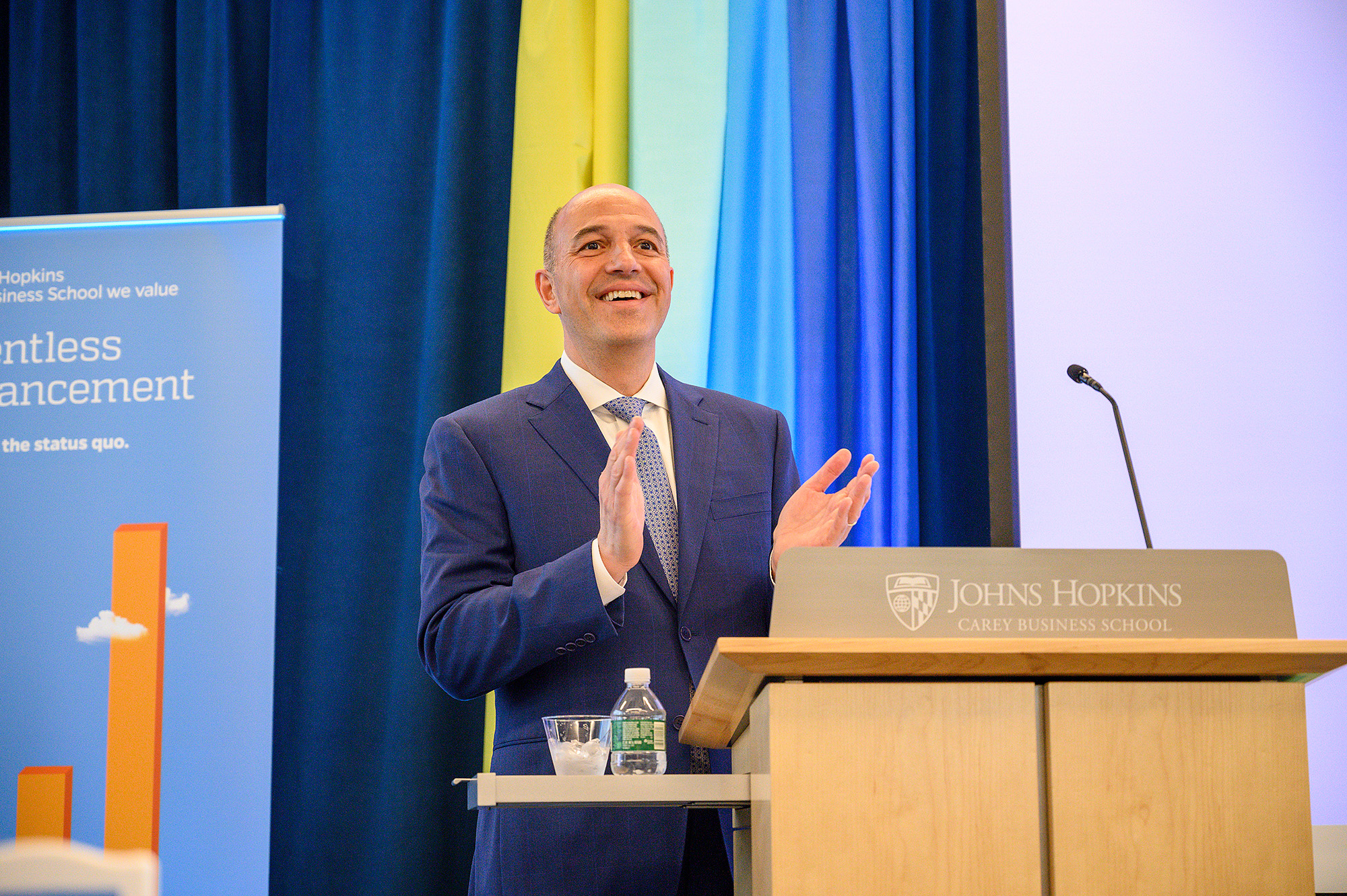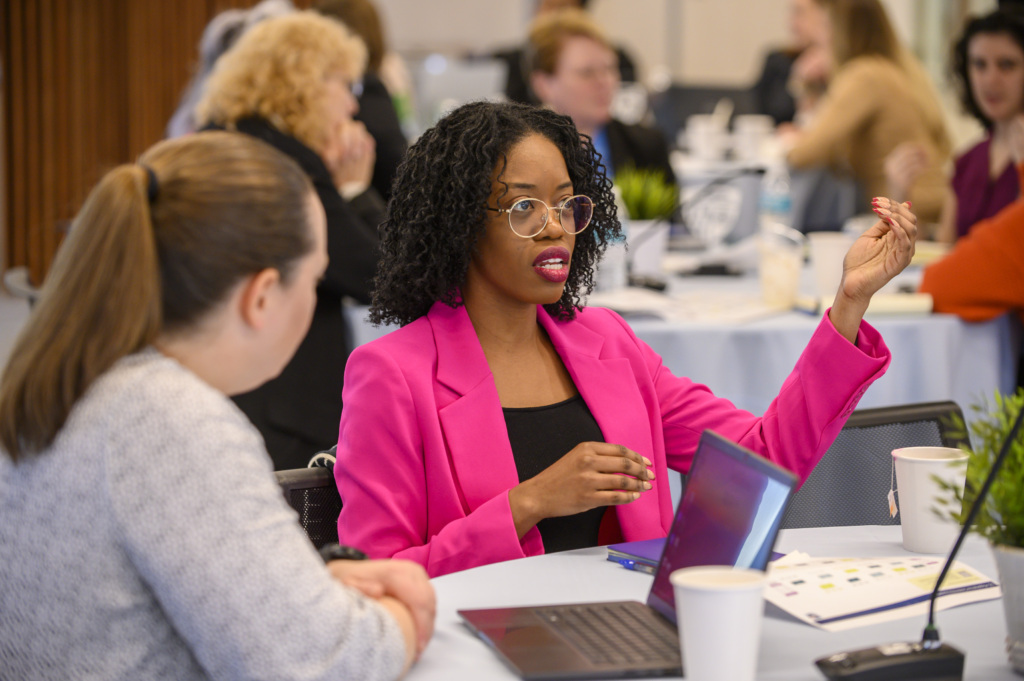
Carey at a glance
Since 2007, Carey Business School has been building on its foundations and the legacy of Johns Hopkins University with focus, determination, and accomplishment. Here are just a few of our distinctions.
The university
Johns Hopkins enrolls more than 24,000 full-time and part-time students in nine academic divisions at five locations in Baltimore and Washington, D.C., and facilities throughout the Baltimore-Washington region as well as in China and Italy.
10 academic divisions
4 Baltimore locations
1 D.C. location
Carey's 2023 Full-time MBA graduates
90%
accepted fulltime offers within 90 days after graduation
$118,758
average base salary (not including signing bonus and additional guaranteed compensation)
$24,048
Average signing bonus
$23,189
average additional guaranteed compensation

Carey Business School
With a Johns Hopkins Carey Business School MBA from either our full-time or part-time flexible programs, our graduates thrive as soon as they earn their degrees.
- 90% accepted full-time offers within 90 days of graduation
- $118,741 average base salary excluding signing bonus
- 70% got a raise during the program
- 61% were promoted during the program
- 84% say the degree is helping them advance
- $152,962 average base salary excluding signing bonus
2023 Full-time MBA graduates
2022 part-time Flexible MBA graduates
Selected achievements
Every day, Johns Hopkins Carey Business School faculty, students, and alumni are changing the face—and the future—of their disciplines and industries. Here we offer just a few of our achievements.
Carey is one of the first 10 graduate business schools in the country whose MBA program is fully STEM-designated.
In AY2022-23, 25 percent of our faculty were engaged in health-related research, and 10 of our academic programs offered a focus in the business of health.
More than half of our full-time MBA cohort are women.
We partnered with 74 businesses for experiential learning opportunities in AY2022-23.

In the last five years, we have grown our full-time faculty by more than 25 percent.
Eight faculty members are among the world’s most cited scientists.
Valerie Suslow won the GBC Roundtable Leadership in Graduate Business Education Curriculum Innovation Award, promoting educational initiatives that advance innovation in graduate management education and acknowledge the institutions that drive change in the field.
Tinglong Dai was elected as vice president of Marketing, Communications, and Outreach for INFORMS, the largest professional society for analytics professionals.
Nagpurnanand Prabhala was elected as senior fellow of the Asian Bureau of Finance and Economic Research. ABFER is an independent network of high-quality academics, that aims to promote Asia-Pacific-oriented financial and economic research and connect globally prominent academic researchers, practitioners, and public policy decision-makers.
Dan Polsky co-chaired a National Academies report, “Federal Policy to Advance Racial, Ethnic, and Tribal Health Equity.” The report analyzes how past and current federal policies create, maintain, or amplify racial, ethnic, and tribal health inequities. Learn more about the release webinar at the event web page.
Suntae Kim was named to the Responsible Research in Business & Management Honor Roll for his study “Going viral or growing like an oak tree? Towards sustainable local development through entrepreneurship.”
Ge Bai testified in front of the House Ways & Means Committee’s Subcommittee on Health about nonprofit hospitals’ tax exemption, community benefit provision, and profit-seeking activities.
Luis Quintero testified in front of the Senate Judiciary Committee’s Antitrust Subcommittee on competition issues in the housing sector.
Toby Gordon was elected chair of the Council of Public Members and will serve on the board of the Accreditation Council for Graduate Medical Education.